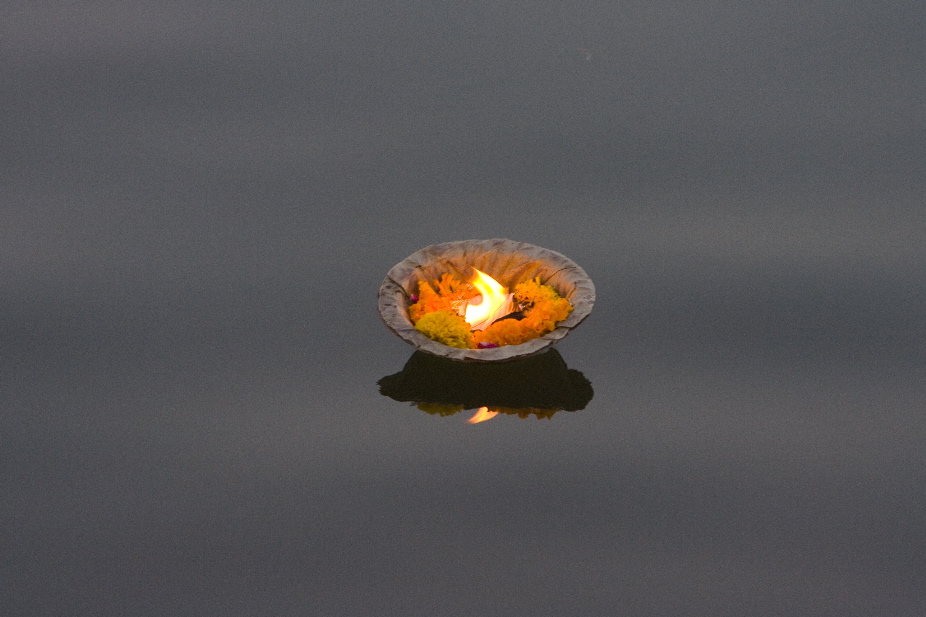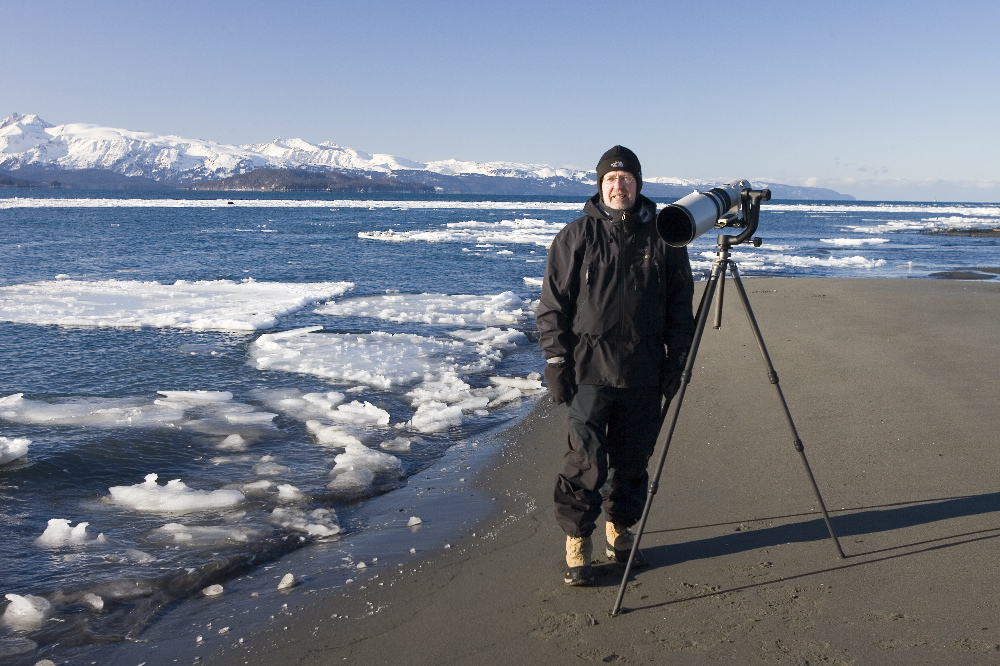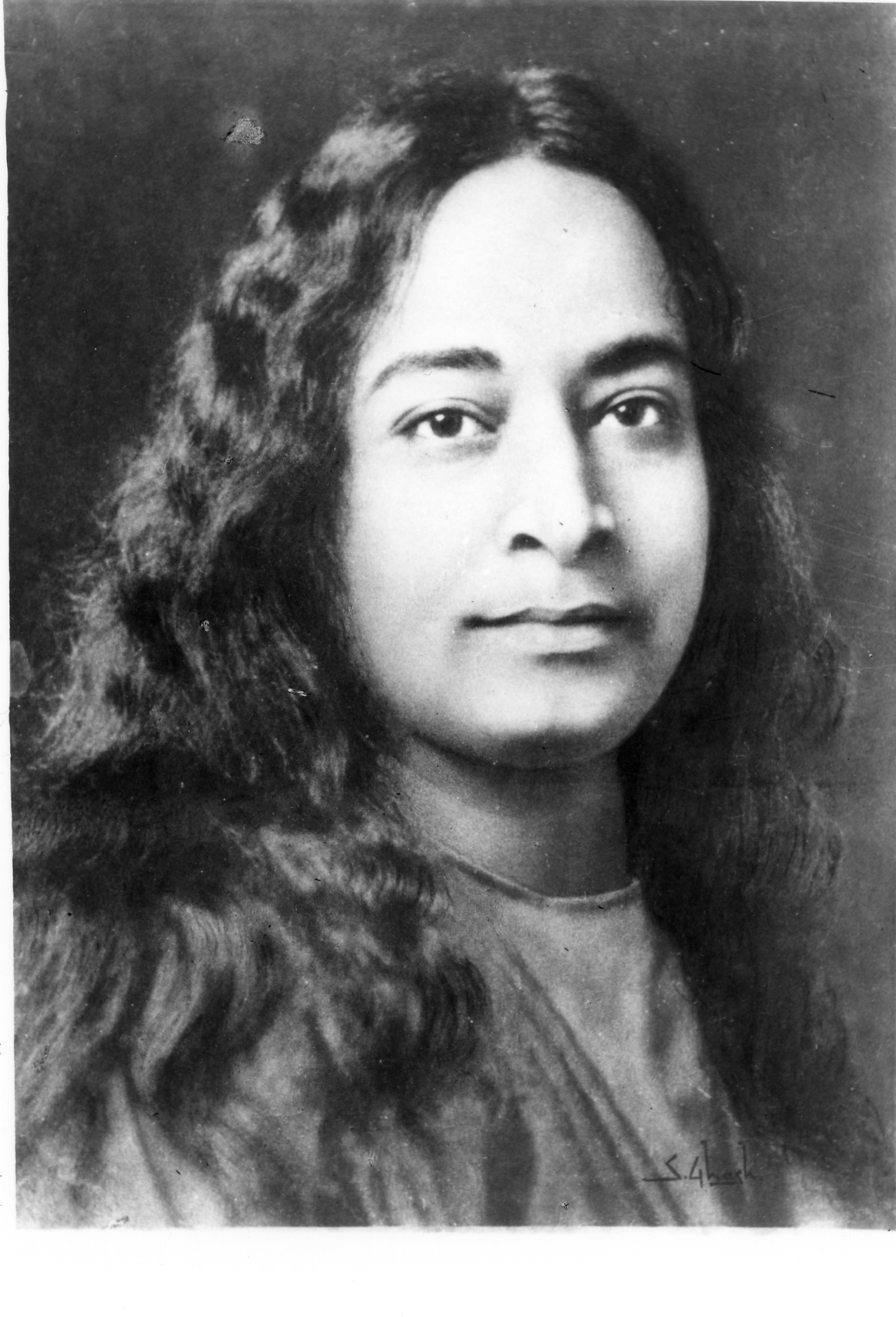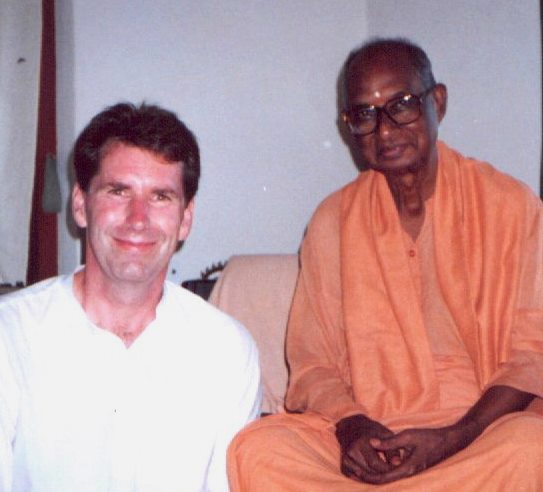
When pilgrims begin their journeys they many times envision going to a holy place and getting the benefits from a holy site or saint. However, a larger view of a pilgrimage is that from its very conception in the mind of the aspirant, and everything that happens including oppositional forces of every kind, is all part of the sacred journey. The first foray into this North American Pilgrimage was seemingly interrupted with illness, various mechanical problems needed solving, a family crises delayed us a another week–all are part and parcel of this pilgrimage, not simply interruptions. This past week, on June 15 my brother Mark passed away. This is a new dimension for this pilgrimage, and with it there is sorrow, reflection and surrender to God.
Sorrow comes at the loss of my brother, he has been a fixture in my life from my birth, and he will be missed. As an aspirant, one may wonder at the role of emotions–do realized Masters have them? We know that from the lives of Jesus, Master and Mother emotions played a definite role. The real question is not whether one has emotions, as long as we live in bodies there will be emotions, the central aspect is whether those emotions put us “into a mood,” do they separate us from God? Emotions can be a sign of attachment, and if that is the case then it will be difficult to allow them to move through; we will be immersed in them or block them. However, if you feel that it is God who is expressing Himself as the emotion itself, and you are the witness as it comes through you, then you maintain detachment and it has no hold on you; you seamlessly continue your connection with your pure Self.
Besides sorrow, Mark’s passing has also made me reflect on his life, my life with him and lessons that I draw from it. Mark has been a great teacher for me in this life. There are very few things we agreed upon, and this made me be clearer in my own thoughts–as in the past I was someone who wanted to please others, sometimes at the sacrifice of staying true to myself. He made me stronger, and for that I thank him. Mark could be fearless in expressing himself, this too was a valuable lesson for me.
Surrender comes in the form of giving Mark up to God. Although he did not profess a faith in the sacredness of life, I hold it for him–he is a divine soul in God. He did not see the supreme Light beyond worldly preoccupations; I behold the eternal light in him. In my surrender of him to the Infinite, I see his eternal soul ever in God. With inner vision I see his life proceeding and finding happiness and joy–not joy from a world that disappointed him–but peace from the ever-shining Light of his perfect Self. This is how I see him now, this is how I know him to be always.
I am including these written snapshot memories of Mark I wrote on the day of his passing. He did not want a service or memorial, so I have written these down in honor of his life:
Today, June 15, 2017 my brother Mark has passed away. A few of you have met Mark, some have heard stories about him, and it is with sorrow that I tell you he has quit this mortal coil.
Family members play a special role in our lives, as they have been with us longer than most acquaintances–with us through every stage of life. It seems that life gears us up to know its temporary nature when, in the usual order, grandparents depart, eventually parents and then siblings. Each passing reminds us to value the time we have, for we will all reach an expiry date in these human incarnations.
Mark has had a lasting influence in my life. When young he alternated between taking out his childhood aggression on his little brother, and then ignoring me. This was interspersed with times of fun. Like looking through a picture album, snatches of memory erupts on my mental screen.
We used to talk in B-Balk when youths. The rule was to replace the first letter of every word with the letter B. Bes, Bou Ban Bearn Bo Balk Bhis Bay Boo! We also shared great fun in getting the latest Mad Magazine; 25 cents–cheap! Other times we fought: getting back at him I once threw a hammer from one yard to another, the claw hit him on his bare foot–I got into trouble for that one! Or the time I hit him over the head with the cast of my broken arm when defending myself!
Mark had a brilliant mind, filled with more trivia and historical fact than most would ever retain. He could go through the Trivia Pursuit cards, one after another with a very few misses. Though he was not inspired to finish a university degree, much of Mark’s education came from reading, for he consistently consumed books. Pure history, historical fiction and fiction were his appetites. Wars and spies were consistent favorites: Le Carre and Clancy for fiction, and World War II was a favorite target for history.
He travelled through Europe and Africa in the early 1970s, and when in Africa became ill with malaria. Wasted to a skeletal form, the consulate contacted my parents so he could fly home (he was also robbed while there). He was to have ongoing bouts of malaria and digestive problems for years to come. World travel continued to be a passion, however he could then afford to travel with a less risk to life and health.
He rode bicycles long distances–one such trip he ended up in New Mexico, and then in the hospital with another bout of illness. He flew back to Seattle and ended up living with me for the next year. Toward the end of that time he asked what I thought he should do for a living, he had been a Volvo mechanic but never wanted to be greasy again. I suggested he could combine his love for travel with work by becoming an electrician–thinking he could travel the world plying his trade in construction projects overseas. He was a brilliant student and before he completed trade school Stanford University hired him.
Mark became an avid tennis player, he was team captain for mostly Stanford University professors playing competitively (he was uniquely situated to be captain as he was above university politics). He enjoyed telling some of the top professors in the world they could not play in the tournament because they missed too many practices. He also delighted in telling stories about professors he dealt with, armed with the power of being a blue collar journeyman. One called Mark in after he had started an experiment. They were not getting “clean electricity” flow, which was affecting their results. Mark analyzed their system and said, You need to shut it all down, I will have to rework your wiring or you will never get reliable results. The professor protested, this experiment had been going on for months, so much money had been invested in it, I can’t just shut it down! Mark informed the professor he should have called him in before he started the experiment, but it would have to be shut down now if he wanted valid outcomes. A few days later Mark received the call, Come shut it down!
Whatever Mark did, he did all the way, and when he was finished with it, Why would anyone waste their time doing that! He taught me a valuable lesson when I was a young adult. Even at a fairly young age Mark was a contrarian and a curmudgeon who fearlessly said what he thought. A few times I would echo some thought he had expressed on a previous occasion, however being a contrarian Mark would take the opposite point of view! In this way he taught me to be my own person, I would never win his approval by parroting something he had said. Down through the years there were, in fact, very few things we ever agreed upon.
However, if Mark respected someone, he could (rarely) subject himself to their criticism. When I received a digital camera as a wedding present he said he would never have such a thing, using film was the only way to go; as he was a serious amateur photographer. Granted, early digital cameras could not compete with film cameras. However, later he switched over to digital only, having to discard his very expensive lenses. He studied under a professional photographer who gave classes. On one such occasion Mark travelled to Florida, shot pictures in the early morning, worked on them digitally in the afternoon, then gathered together as a class where each picture presented was dissected. The teacher would ask, Who thinks this is a good picture? Some poor soul would venture to say he thought it was, then the teacher would go over point by point what was wrong with it. Walking through town one day Mark and I stopped in front of a photography studio with large pictures in the front window. He said he couldn’t believe they used that wedding photo in the front window. When I asked what was wrong with it, it looked ok, he gave an excellent analysis of details I had not noticed, but once pointed out they were obvious flaws and had me wondering as well, why would the photographer use that photo?
Mark travelled all over the world on photography tours. From Madagascar to China, Alaska to Venice, India to quaint Maine coastal towns–he gathered an impressive array of photographs from places that took his fancy. In the process of showing his photos he told stories about his adventures. Mark could be an inventive storyteller, and if he had a captive audience, and a captive audience is the only one he would spend his time on, the stories could grow and grow. One aunt in particular would express amazement at his recounting some adventure, and the more amazed she got the grander the story became. It was entertaining to watch him work his listener; there were many a story that took on greater dimensions as I heard them repeated through the years.
Mark spent much time and effort putting together beautiful family-tree portraits. He intermixed family pictures and history, with larger world events consistent with the times. In typical Mark fashion in giving gifts, he put together expensive family history books and gave them to family members. His gift giving would mostly come in unpredictable ways, and would always be very nice. It was not unusual for me to not hear from Mark for long periods of time, then very occasionally he would send me an expensive gift. Once I had not heard from Mark for over a year, and one day he sent an automated bread maker–without explanation it just arrived in the mail. He gave generously, but he gave on his terms–one never knew from where or when. The family history books ended with our grandparents generation. I asked about our parents, he said, no, he would never include them. Later on he did. The family history project ended up having a healing effect for him.
Mark had a difficult relationship with our father, and in truth there were painful events in his growing up years. Soon after our father’s passing Mark moved back to our home town, went to work for brother Jerry in the family business, and spent time with our mother. In a sense, he came full circle; it was the last of his working years and a significant time. However, our father and Mark did share definite traits. In a pattern much in the mindset of our father, Mark planned out every detail in the event of his death.
He was anti-religious and had contempt for much of the world. However, to meet him you would most likely like him, there were few who did not. However, his approval, if it came at all, could be fleeting. He and I have gone through years when he has not spoken to me (never an overt argument), and other times we got along as if no time had gone by at all. Relationships seemed to sour more times than not with Mark; a mystery for one who could win the approbation of others so easily.
One gift Mark gave, that has been a gift for many of us, is the work he put into the DVD: Mother Hamilton: A Divine Life. Mark spent many hours with me, and many more on his own, working and reworking the details for this centenary DVD celebration of Mother’s life. Even though Mark evinced no interest in the subject matter, he spent countless hours with Mother’s pictures, history, music and my commentary. It was a selfless service, and as always, he would accept no compensation for it. He helped others on their family histories, as well as other projects he found interesting; he spent many hours at a community history museum documenting pictures and putting together a DVD history. He never had a thought for compensation, but some Oohs and Aahs were always much appreciated.
Mark did not want a memorial service of any kind, and has asked that his ashes be spread on the Pacific Ocean. I have always been struck by obituaries in which a life is summed up in a picture and a few paragraphs–it seems so…inadequate. And, of course it is. These snapshots of my memories seemed to be a way for me to convey a little of the uniqueness of Mark’s life. Each life is important, at least to the person who lived it, not to mention all the lives that one touches. And each life is sacred, and whether Mark would like to hear it or not, so is his. His sojourn in this life is now ended, may God bless him and keep him, and reveal ever-new wonders of our heavenly Father’s house, which has many mansions; enough even to entice a lovable contrarian and curmudgeon.








